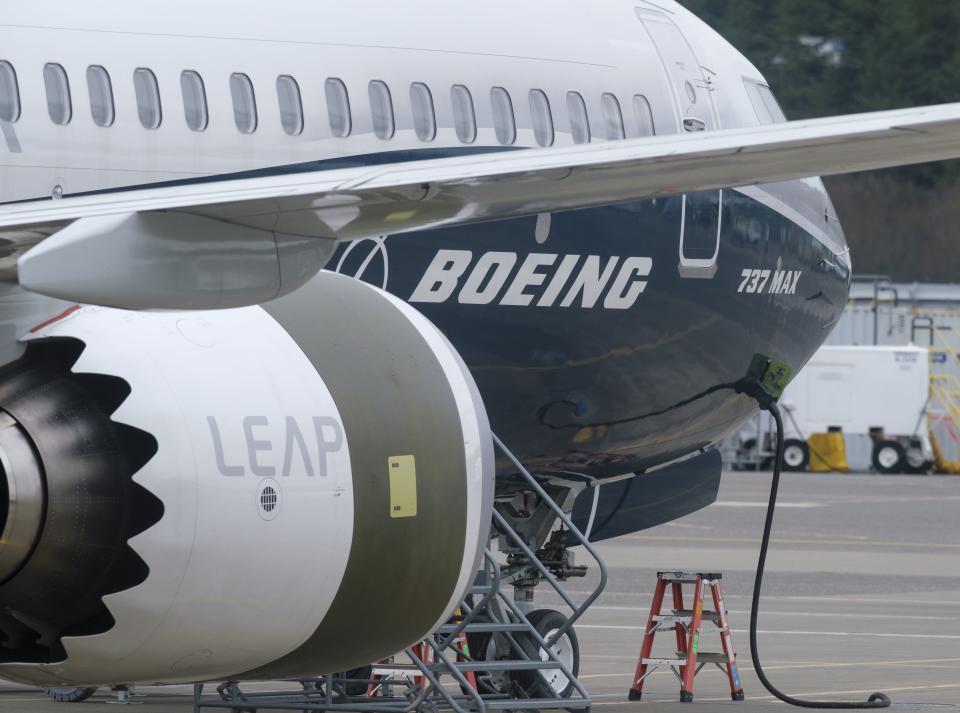Grounded Boeing 737 Max also grounds FAA reputation

Consider this worst-case scenario: A Congress bent on streamlining government orders the Federal Aviation Administration to turn over more and more safety oversight to aircraft makers. Factors such as production, profits and U.S. jobs seep into federal safety certification so that Boeing, eager to outsell rival Airbus, wins reduced scrutiny for its new 737 Max series. The new fleet turns out to have a hidden flaw — an automated anti-stall feature that can be violently activated by an errant sensor, wrestling control of the aircraft from undertrained pilots and plunging it into the ground. This flaw contributes to two air disasters within five months, one in the seas off Indonesia on Oct. 29 and a second in Ethiopia on March 10, that leave 346 people dead.
It all seems unthinkable — if only so much of it wasn't already known to be true and the rest the focus of investigation. "Clearly," Transportation Department Inspector General Calvin Scovel told a Senate subcommittee on Wednesday, "confidence in the FAA as the gold standard for aviation safety has been shaken."
Actually, this wouldn't be the first time that excessive FAA coziness with airlines and manufacturers has contributed to tragedy. Lax FAA oversight was a factor in the 1996 crash of a ValuJet flight into the Florida Everglades, killing 110, and an Alaska Airlines crash in 2000 that left 88 dead.

FAA: We don’t allow companies to police themselves
Over the past decade, U.S. commercial airlines have had an extraordinary safety record. But there's the risk that success bred complacency on safety certification, particularly as avionics and software grew increasingly complex.
Congress and successive administrations pushed the FAA to cut costs by delegating more regulatory work to manufacturers — a practice not unlike allowing authors to review their own books. Insiders have warned for years that FAA was delegating away its world-class reputation on safety:
►In 2004, an FAA union called it a "reckless" practice that "would actually compromise public air safety" and was establishing a "fox guarding the henhouse mentality."
►Agency workers complained in 2012 that FAA management and Boeing — between which there was virtually a revolving door of employees — were growing too familiar.
►A 2015 internal audit raised concerns that oversight of the delegation program was focusing more on "paperwork — not on safety-critical items."
That same year, as reported in The Seattle Times last week, the FAA delegated to Boeing a review of the automated anti-stall feature now at the center of the 737 Max crash investigations, and the safety analysis that came back was deeply flawed.
In the wake of the two jetliners falling from the sky shortly after takeoff, multiple investigations are underway to get to the bottom of what went wrong. President Donald Trump has finally nominated a permanent administrator for the FAA and its 44,000 workers. Boeing this week announced software fixes to the anti-stall feature of the 737 Max series.
Those jetliners remain grounded worldwide, as well they should, until the fixes are fully tested and pilots are fully trained. In the meantime, the FAA, once at the global forefront of air safety issues, finds itself leading from behind.
USA TODAY's editorial opinions are decided by its Editorial Board, separate from the news staff. Most editorials are coupled with an opposing view — a unique USA TODAY feature.
To read more editorials, go to the Opinion front page or sign up for the daily Opinion email newsletter. To respond to this editorial, submit a comment to letters@usatoday.com.
If you can't see this reader poll, please refresh your page.
This article originally appeared on USA TODAY: Grounded Boeing 737 Max also grounds FAA reputation

